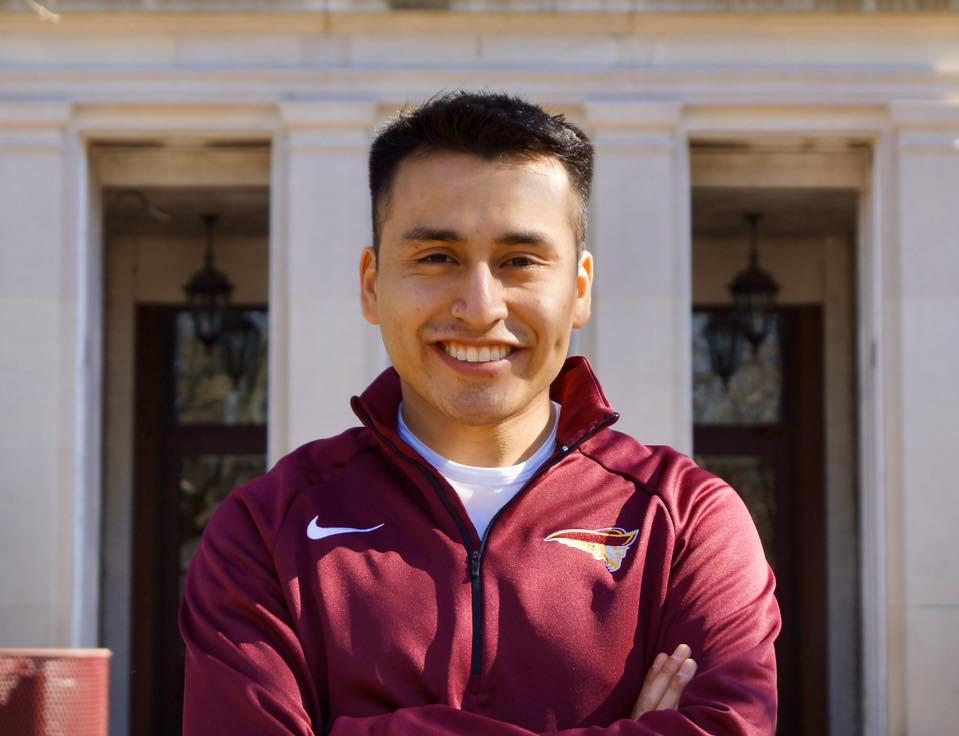In celebration of National Hispanic Heritage Month (September 15 to October 15), we honor contributions made by the Hispanic and Latinx community in Delaware education. We are spotlighting the many voices and stories of students, educators, community members, and elected officials that continue to make tangible changes in our state.
Out of Delaware’s 19 school districts, Rony Baltazar-Lopez is one of only two Hispanic leaders serving on a school board. The broader Milford community chose an extraordinary voice who represents all kids, including those whose culture and needs are usually left out of decision-making rooms.
We sat down with Rony to learn about his journey from Delaware student to elected school board member and the importance of advocating for Hispanic voices in education.
Q: What impact do you think the COVID-19 pandemic will have on students and schools in Delaware?
A: The effects of COVID-19 are still being felt, as many schools in Delaware are not yet opening their doors for full-time in-person instruction. Because of COVID-19, many students may continue to face greater food insecurity, loss of family income, loss of family members to the virus, and if school districts do not have well-prepared instruction plans to reach students virtually, loss of learning opportunities.
Unfortunately, COVID-19 has not presented us with new inequities, it has exposed and highlighted existing ones- especially among our students of color, students with disabilities, and English language learners.
With that said, we—community members, parents, teachers, administrators, board members, nonprofit agencies, and government agencies—must continue to work together to fulfill our moral obligation of educating students. This means that whenever possible becoming a mentor/tutor for students who need assistance, communicating vital information and resources to those who may not know about them, and staying engaged in the process. Tuning in to your local school board meeting to hold board members accountable is one way.
Q: Why is it so critical for the Hispanic and Latinx community to get involved in education?
A: In Delaware, of the 140,849 students enrolled in public schools, about 18 percent of us are Hispanic or Latinx students. However, only about three percent of all teachers are Hispanic or Latinx Hispanic and less than two percent of school leaders are Hispanic or Latinx.
This lack of diversity presents its own challenges, including language barriers and cultural unawareness affecting our students and families and hindering the ability of school districts to connect with families. Research demonstrates that when effective two-way communication exists between schools and families, both groups are better prepared to help their student or child succeed.
It is, therefore, imperative for Latinos and Hispanics to become involved in education, especially now as COVID-19 continues to hit English language learners and Hispanic or Latinx students the most. Without advocacy on behalf of parents and students, teachers and staff may be unaware of the critical issues that families face.
For instance, Hispanic and Latinx children are oftentimes the only English-speaking members of the household. If teachers and staff are aware of this, then they know to work with the district translator or adjust their communication style to ensure understanding.
Q: What should school boards be doing better when it comes to engaging the Hispanic or Latinx community?
A: School boards and their members are accountable to all members of the school district regardless of their race, national origin, sex, status, primary language, and where they reside.
Whenever appropriate, board members should be asking questions about how their school districts are ensuring proper and effective communication with families whose primary language is not English.
But it is not enough to ask this question, board members should actively find ways to ensure that members of different socioeconomic groups, including the Hispanic and Latinx community, are being represented. Through partnerships with local churches, nonprofits, and business owners that work with members of diverse communities, board members can seek to understand different perspectives and ensure that when voting on budgetary or school policies, they have a good understanding of the different people in their communities and that those decisions will produce outcomes beneficial for the maximum amount of stakeholders.
Q: What advice do you have for Latinos and Hispanics who are interested in running for the school board?
A: If someone told me two years ago that I would be elected as a school board member, and then chosen as the Vice President by my colleagues, of the school district that I graduated from, I would not have believed them. And as I write this, I continue to be in disbelief.
For Hispanics or Latinxs, who are interested in running for school board, do it.
Do not be discouraged by what others may say about your age, your background, the language you speak, or the matter in which you present yourself. Be confident, but humble; passionate, but realistic; and intelligent, but not arrogant.
As Hispanics and Latinxs, we don’t see enough of us in positions of leadership or power, so we often doubt if we as individuals can change the status quo. It is up to us to break barriers, and we must remember that if we open doors for ourselves, we must keep those doors open so that more Hispanics and Latinxs can be inspired to do the same.
Q: What advice do you have for Hispanic or Latinx youth?
A: My biggest advice to all the Hispanic and Latinx youth is to be inspired, learn from the mistakes of others, and to take advantage of the education they are receiving. Our immigrant families came here for a purpose: to see their children become what they could never be because the American Dream still exists if we have the courage to pursue it.
First State Educate celebrates National Hispanic Heritage Month September 15 – October 15. Originally published as a blog on www.firststateeducate.org

